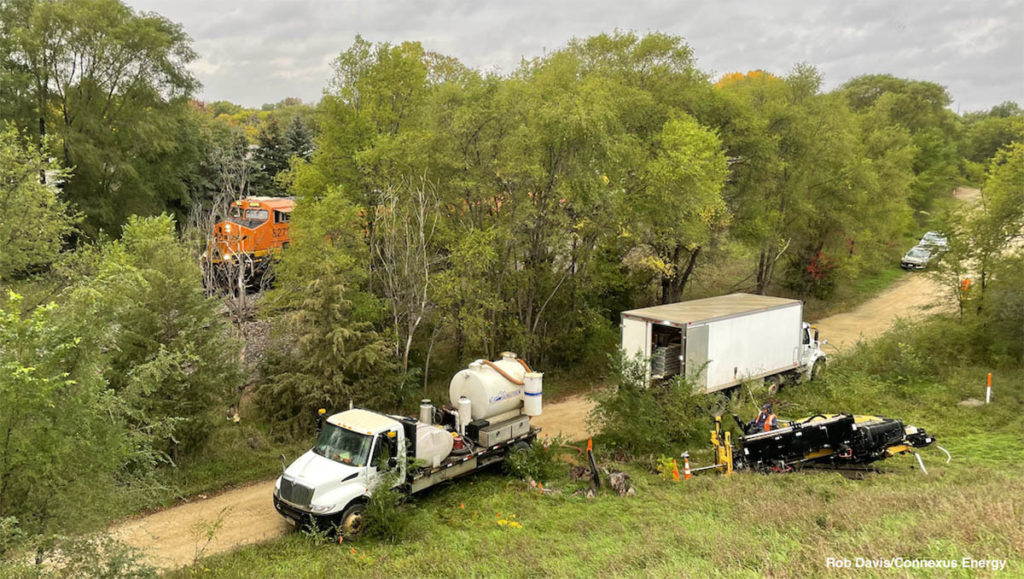
Minnesota electric cooperatives scored a major victory against unlawful fees and requirements from railroad companies, with state regulators basing their unanimous decision on a state right-of-way law written in part by the statewide association.
The Oct. 5 order by the Minnesota Public Utilities Commission allowed Connexus Energy to immediately begin replacing old distribution line underneath tracks owned by BNSF Railway and located in a public easement. The commission denied the rail giant’s 52 requirements and a request for a hearing and restricted BNSF to “reasonable and necessary” traffic flagging expenses.
It was the first test of the 2016 railway crossing law by an electric co-op before the PUC after the Minnesota Rural Electric Association led a two-year fight for legislation to curtail railroads’ widespread, costly impediments levied on co-ops for right-of-way work.
“To protect our members from those demands, it became a priority for us,” said Darrick Moe, MREA president. “We work with members on this all the time.”
As part of its ruling against BNSF, the commission also opened a docket to gather information on whether to launch a comprehensive investigation into similar cases involving railroads and co-ops.
This case arose from a conflict between Connexus Energy and BNSF a year ago after the railroad added requirements to its agreement for co-op work at a crossing in Coon Rapids, a northern suburb of Minneapolis, and tacked on a $2,500 fee for two days of flagging. BNSF further insisted the co-op buy more insurance and that a rail employee be onsite for construction to occur.
“We are lean organizations,” said Nick Loehlein, vice president of electric operations at the Ramsey-based co-op. “The obstructions and delays really impact our ability to serve our members. But cooperatives need to stand tall.”
After months of negotiations came to an impasse, Connexus took its case to the PUC.
The statute, upheld by a state court in 2018, clarified that railroads may charge a flat $1,250 fee for crossing work in a private right-of-way but no fees in a public space. The law limits requirements to those involving safe operations of the rail line.
Connexus credits the win at the PUC “to the cooperative spirit” that included the support of the MREA and telephone co-ops.
Cathy Cash is a staff writer for NRECA.